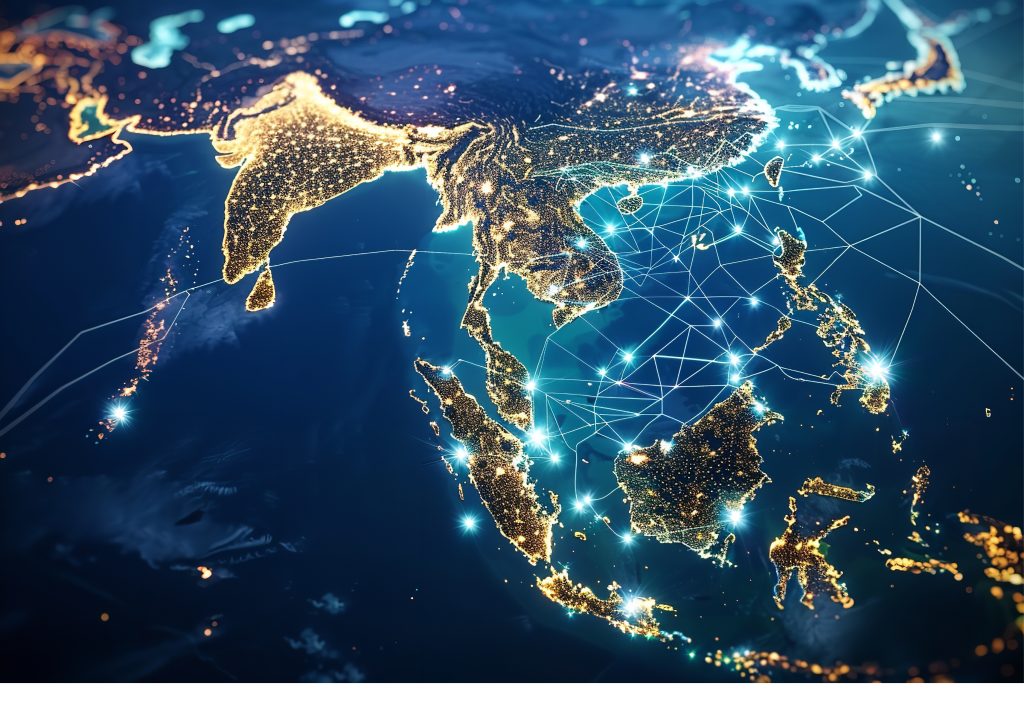Advances in AI are turning Asia into a new hotspot in the global data center race..

The explosion of artificial intelligence (AI) is fueling a surge of investment in Asia’s data centers, with record loans signed and more deals on the horizon. In just one week, two major Asian data center operators have raised their largest-ever loans, partly to expand in Malaysia, which is emerging as a new hub for the industry.
These deals not only show the attractiveness of the data center industry to investors ranging from banks to real estate companies, but also reflect Asia's increasingly important role in the sector, especially as demand is forecast to grow strongly over the next decade.
RECORD LOANS AND THE ATTRACTION OF THE DATA CENTER INDUSTRY

As AI drives demand for data storage and processing infrastructure, two recent major deals have highlighted the potential of the Asian market. Bridge Data Centres, a Bain Capital-owned company, raised $2.8 billion in debt to expand its operations in Malaysia, while DayOne (formerly known as GDS International) also raised $3.4 billion in debt. These are record numbers, demonstrating the attractiveness of the sector to investors.
According to a report from Cushman & Wakefield, a real estate services firm, demand for data centers in Asia-Pacific is expected to grow by about 32% annually through 2028, far exceeding the 18% growth expected in the U.S. This disparity shows that Asia is becoming a global hotspot for data infrastructure, thanks to the rapid development of AI technology and increasing demand from multinational technology enterprises.
Yemi Tepe, đối tác tại công ty luật Morrison Foerster, người có kinh nghiệm trong các giao dịch tài chính liên quan đến công nghệ, nhận định: “Nhu cầu bùng nổ về năng lực trung tâm dữ liệu đã thu hút sự quan tâm của một nhóm nhà đầu tư và nhà cung cấp vốn ngày càng đa dạng tại khu vực châu Á – Thái Bình Dương”. Theo ông, nếu trước đây ngân hàng là nguồn tài trợ chính cho các dự án quy mô lớn, thì nay các quỹ tín dụng tư nhân và quỹ hạ tầng đã mở ra những con đường tài chính mới, giúp ngành này phát triển mạnh mẽ hơn.
ASIAN DATA CENTER MARKET: OPPORTUNITIES AND CHALLENGES

In addition to the two big deals, several other projects in Asia-Pacific are in the pipeline. A Singapore-based subsidiary of Australia’s Firmus Technologies is seeking $120 million in private debt, while India’s Yotta Data Services Pvt. is in talks with private equity funds to raise about $500 million for its data parks. These moves underscore the strong inflow of capital into the region, not just from traditional investors but also from emerging financial institutions.
Rising geopolitical tensions between Beijing and Washington are accelerating this trend. Multinational technology companies are looking to diversify their supply chains, reduce their dependence on China, and are shifting investments to Southeast Asia. Hundreds of billions of dollars are pouring into small towns in the region, transforming the local economy. Malaysia, especially the southern state of Johor, which borders Singapore, has become one of the most attractive destinations. The state currently has about 30 data center projects completed or under construction, with another 20 awaiting approval. In Thailand, the government last week approved investment applications worth $5.9 billion, including three related to the data center industry.
But the industry is not without challenges. New US tariffs and the threat of an escalating trade war could be big unknowns. Asian countries, which supply much of the data center industry’s components and equipment, such as semiconductors, could be targeted by tariffs. If supply chains are disrupted, many projects could be put on hold.
“These geopolitical risks could increase financing costs, reduce investor confidence, and increase credit risk for financiers,” warned Yemi Tepe, adding that investors could demand higher risk premiums or withdraw funds from projects involving Chinese entities, slowing the growth of the Southeast Asian data center market.
ASIA: THE NEW HOTSPOT OF GLOBAL DATA INFRASTRUCTURE

The rise of data centers in Asia is not just a story of big loans, but also reflects a strategic shift in the global technology industry. With rapid urbanization, a young population and a boom in AI applications, the region is becoming an indispensable hub in the digital economy. Countries such as Malaysia, Singapore, Thailand and India are leveraging their geographic advantages, preferential policies and human resources to attract investment.
Malaysia, thanks to its proximity to Singapore – one of the world’s largest financial and technology hubs – has quickly emerged as a popular destination. Johor State has benefited not only from the influx of capital but also from the accompanying infrastructure development, such as electricity and telecommunications. Meanwhile, India, with its huge consumer market and booming technology sector, is also pushing to build “data parks” to meet domestic and international demand.
However, Asia’s dependence on high-tech components, especially semiconductors from Taiwan, South Korea and China, makes the market vulnerable to geopolitical fluctuations. If the US imposes heavy tariffs on these countries or restricts technology exports, the cost of building and operating data centers could skyrocket, reducing the region’s competitiveness.
Despite the challenges, the outlook for Asia’s data center industry remains bright. Rising demand from AI, cloud computing, and digital applications is creating unprecedented opportunities for investors and businesses. Private credit and infrastructure funds, which have greater flexibility and risk tolerance than banks, are expected to play a larger role in project financing in the future.
To sustain growth, Asian countries need to develop long-term strategies that focus not only on attracting capital but also on ensuring sustainable energy supplies and developing high-tech human resources. Malaysia and Thailand have begun investing in renewable energy to support data centers, while India is stepping up training of software engineers and AI experts.
(Source: https://vneconomy.vn)
